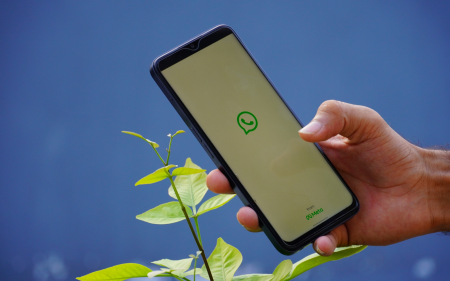This year, with data leaks becoming a massive issue, we could all do with taking stock of the security we use on communication platforms — and one way to do this may be through a South African-developed app called 10 Thirty.
While it’s easy to shake our fists at the likes of Facebook, LinkedIn and Clubhouse when our data is leaked into the wild, a share of the responsibility does reside with us.
Making sure our apps are up to date would help, as would toggling the security settings on our social media profiles and (for the love of God, I can’t still believe I need to say this) making sure we don’t use the same password for various accounts. Still, there is only so much regular folk can do to secure our data, which is why when an app like 10 Thirty pops up, it feels like a breath of fresh air.
Use the 10 Thirty tunnel
Designed by local tech entrepreneur Katlego Phogole at Call IT Services, 10 Thirty may the best way to make digital conversations way more secure for its users, even those on platforms that already offer end-to-end encryption.
“I’m a big fan of privacy on the internet and this is my contribution to helping internet users retain their privacy online,” says Phogole. “That’s what 10 Thirty is all about.”
The way it works is the user signs in to the app via any web browser, create a tunnel which, you share with whomever they wish to talk to. Once participants are in the tunnel the conversation can happen.
“It’s a web application so it is cross-platform, if your device has a browser – be it a smart device or desktop or whatever – you can use 10 Thirty,” says Phogole.
However, 10 Thirty differs from chat apps in that it will delete the conversation once it’s finished, and the participants depart – in much the way Snapchat deletes posts after a certain period of time has passed. This means there will be no record of any conversations that use 10 Thirty.
In a way, it returns conversations to the space that existed before all of the neat chat apps that we have today. It’s almost like having a conversation with someone away from your smart device or computer – once the conversation is over, it’s over and only the participants will have a record of what it was about. With 10 Thirty, users can take back more ownership of the chats they have than if they didn’t use the app.
Why the extra layer of security?
Beyond the issue of securing one’s online privacy in chat — which this app makes a rather decent case for — Phogole says a major reason for its development was to provide a shield from parties who may be at risk.
“It’s hard to take a step forward on current apps and email if you’re a victim of gender-based violence,” he says. “If you’re a whistle-blower in a corporation or government it’s hard to do this too. Given the fact that there’s no record of your chats afterwards, 10 Thirty can be a valuable first step towards opening a dialogue in a safe space.”
“10 is not a downloadable app, which adds another layer to the secrecy. With it being a web app, people don’t even have to know you use it,” he says. “We recommend using the app in the Duck Duck Go browser because when you’re done, you click on the button and it’s not even in your history.”
It would be remiss to mention, though, that the app could also be used for less than honourable means; it could, for example, be a boon to users who cheat on their other halves in relationships — particularly if their other halves are in the habit of going through their phones and computers. This is before the uses one can imagine how criminals would use the app.
But then, whenever a new technological advancement enters the market, it can always be used for nefarious purposes – for proof of this readers need only check out the nightmares social media companies have been experiencing for the first three-and-a-half months of this year.
Could 10 Thirty be a new direction in Africa?
Phologe says that he’s hoping 10 Thirty can inspire more developers in Africa to put their creations forward. Africans, he says, should have their own chat apps, their own social media and they shouldn’t be intimidated by overseas Tech Giants to strike out on their own.
“Technology is the great equaliser and it enables you to take something from idea to production and then a to market. South Africans have proven that they are more than capable of,” says Phogole. “When it comes to competing with Silicon Valley at the moment I’m going to say no, the established enablement of entrepreneurship in the Valley puts it way out there for us to compete with, I would say as a dev community in SA we should be looking at our Nigerian brothers.”
“We have serious skills in this country,” he adds.




